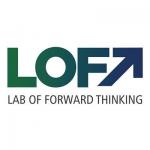Manulife to explore wealth management blockchain application, partners focus on Ethereum
Manulife Financial is a Canadian-based financial services company, offering a diverse range of financial protection products and wealth management services. As of 31st December 2015, the company had US$676b in assets under management and administration. More than 16,000 Canadian businesses entrust their employee benefit programs to Manulife’s Group Benefits, while Manulife Private Wealth offers a seamless and integrated approach to wealth management for affluent clients.
Manulife Financial is a Canadian-based financial services company, offering a diverse range of financial protection products and wealth management services. As of 31st December 2015, the company had US$676b in assets under management and administration.
More than 16,000 Canadian businesses entrust their employee benefit programs to Manulife’s Group Benefits, while Manulife Private Wealth offers a seamless and integrated approach to wealth management for affluent clients.
The group has operated in Asia for more than 100 years, and currently has over 63,000 contracted agents, more than 100 bank partnerships and more than 500 dealers, independent agents and brokers.
In the United States, Manulife operates as John Hancock, which celebrated its 150th anniversary in 2012. With more than 6,300 employees, John Hancock is the number one provider of target Lifestyle Portfolios in the United States based on assets invested in Annuities, Retirement Plan Services, Variable Life Insurance and Mutual Funds.
Waterstone Human Capital named Manulife one of Canada’s 10 Most Admired Corporate Cultures of 2015. According to a 2015 GfK Brand Tracking Study, John Hancock has achieved an 87 per cent overall brand awareness score among U.S. consumers.
John Hancock’s Lab of Forward Thinking (LOFT) recently announced a collaboration with ConsenSys and BlockApps, in the LOFT’s first Ethereum blockchain proof of concept (PoC).
“The LOFT will apply blockchain technologies to enhance the on-boarding of new wealth management clients in order to enhance one of the critical drivers of customer satisfaction.”
— – John Hancock’s Lab of Forward Thinking
"Our goal is to simplify and enhance the customer experience when they first begin doing business with us,” said Ace Moghimi, the Head of Innovation for North America in the Investments and Corporate Function Division’s at Manulife. "In the wealth management business this involves not only satisfying customers, but regulatory and legal aspects as well."
ConsenSys was founded by Joseph Lubin, a Co-Founder of The Ethereum Foundation. While specific details of the POC are unclear, ConsenSys is a venture production studio building decentralized applications (Dapps), primarily on Ethereum. The company also provides various developer and end-user tools for blockchain ecosystems.
There are four characteristics that typically define a DApp; It must be open source, data must be stored and decentralised on a blockchain, there must be a cryptographic token, and the token must be issued via a cryptographic algorithm which represents proof-of-value to the nodes.
Ethereum, Omni and the SAFE Network all operate Dapps, in a variety of ways. Some use their own blockchain, some use existing blockchains.
An attractive aspect of DApps is their ability to run smart contracts, which are computer protocols able to facilitate, verify or enforce the performance of a contract. Large financial institutions, governmental bodies and venture capitalists are investing time and money into these emerging concepts, hoping to reduce costs and increase efficiency.
“These apps run on a custom built blockchain, an enormously powerful shared global infrastructure that can move value around and represent the ownership of property.”
— – Ethereum
ConSensys has been busy, forming strategic partnerships with a variety of large projects and corporations. Late last year Microsoft and ConsenSys formed a partnership to release Ethereum Blockchain-as-a-Service (ETH BaaS) on the Azure Marketplace, making it easier for developers and companies to experiment with the Ethereum blockchain and create their own dApps.
The Microsoft Azure Marketplace is an online market for buying and selling finished Software as a Service (SaaS) applications and premium datasets. The Seattle-based company, under Chief Executive Satya Nadella, has been shifting its focus to cloud services as demand for the Windows operating system slows. Revenue from Microsoft’s Intelligent Cloud segment, which includes Azure, grew 3% to US$6.1 billion last quarter.
Consensus Systems formed a separate partnership earlier this year, joining the Linux Foundation Blockchain Initiative. The Linux Foundation announced the collaborative effort in December 2015, with a focus on enterprise-grade, open source distributed ledger frameworks.
“Distributed ledgers are poised to transform a wide range of industries from banking and shipping to the Internet of Things, among others. As with any early-stage, highly-complex technology that demonstrates the ability to change the way we live our lives and conduct business, blockchain demands a cross-industry, open source collaboration to advance the technology for all.”
— – Jim Zemlin, executive director of The Linux Foundation
“We had several conversations over the past year or so with some of the industry leading technologists who are contributing to the Hyperledger project,” the founder of ConsenSys, Joseph Lubin, said at the time. “The discussion was often about creating a blockchain ‘fabric’ into which modules may be plugged-and-played to form various public or permissioned blockchain architectures. Since this is the direction Ethereum is moving in, especially in the form of the Haskell Ethereum client built by the BlockApps team at ConsenSys, we are happy to continue to participate in those discussions."
The goal of the Haskell Ethereum Client is to a create a reliable, secure node for the Ethereum blockchain, which can serve as a scalable gateway for decentralized applications. Haskell was chosen because of its proven reliability and mathematical verifiability in complex financial environments.
BlockApps STRATO is also built in Haskell, a computer programming language which has a 20 year proven track record in a variety commercial uses, from aerospace and defense, to finance, web startups, and hardware design firms.
STRATO was also the first blockchain application available within the Microsoft Azure Marketplace. The STRATO offering is a single node blockchain instance, which acts as a developer sandbox for testing Ethereum blockchain applications.
"The future of our customer landscape is changing rapidly as a new generation of consumers emerges. Initiatives such as LOFT are critical for success as we continue to innovate and lead in the financial services industry."
— – Craig Bromley, President, John Hancock
John Hancock’s LOFT isn’t alone in exploring blockchain solutions for wealth management. Five of the UK’s largest asset managers reportedly joined forces earlier this year, to see if blockchain technology can reduce trading costs.
The Financial Times claimed that the “secret project” was in its early stages, but already involves fintech companies, start-up technology businesses, and one of the big four audit firms, KPMG.
The main companies involved have a combined total of more than £1 trillion under management; Schroders manages £294.8 billion; Aberdeen Asset Management and Columbia Threadneedle Investments, manage £290.5 billion (~US$428b) and £320 billion (~US$461b) respectively; Aviva Investors and Henderson Global Investors manage a further combined total of £327.5 billion (~US$472b).
A working paper from management consulting firm, McKinsey, on Corporate & Investment Banking, explained the benefits of using blockchains in capital markets, including eliminating a number of middle and back office processes.
“Asset management companies should enjoy the same operational benefits as dealers and intermediaries, with the caveat that their participation may correspond to a leap forward in the impact of the technology, as operational steps such as reconciliation and asset movements are suddenly simplified (with corresponding impact on the traditional providers of these services).”
— – McKinsey & Company

Don’t miss out – Find out more today

 “The LOFT will apply blockchain technologies to enhance the on-boarding of new wealth management clients in order to enhance one of the critical drivers of customer satisfaction.”
“The LOFT will apply blockchain technologies to enhance the on-boarding of new wealth management clients in order to enhance one of the critical drivers of customer satisfaction.” “These apps run on a custom built blockchain, an enormously powerful shared global infrastructure that can move value around and represent the ownership of property.”
“These apps run on a custom built blockchain, an enormously powerful shared global infrastructure that can move value around and represent the ownership of property.” “Distributed ledgers are poised to transform a wide range of industries from banking and shipping to the Internet of Things, among others. As with any early-stage, highly-complex technology that demonstrates the ability to change the way we live our lives and conduct business, blockchain demands a cross-industry, open source collaboration to advance the technology for all.”
“Distributed ledgers are poised to transform a wide range of industries from banking and shipping to the Internet of Things, among others. As with any early-stage, highly-complex technology that demonstrates the ability to change the way we live our lives and conduct business, blockchain demands a cross-industry, open source collaboration to advance the technology for all.” "The future of our customer landscape is changing rapidly as a new generation of consumers emerges. Initiatives such as LOFT are critical for success as we continue to innovate and lead in the financial services industry."
"The future of our customer landscape is changing rapidly as a new generation of consumers emerges. Initiatives such as LOFT are critical for success as we continue to innovate and lead in the financial services industry." “Asset management companies should enjoy the same operational benefits as dealers and intermediaries, with the caveat that their participation may correspond to a leap forward in the impact of the technology, as operational steps such as reconciliation and asset movements are suddenly simplified (with corresponding impact on the traditional providers of these services).”
“Asset management companies should enjoy the same operational benefits as dealers and intermediaries, with the caveat that their participation may correspond to a leap forward in the impact of the technology, as operational steps such as reconciliation and asset movements are suddenly simplified (with corresponding impact on the traditional providers of these services).”

